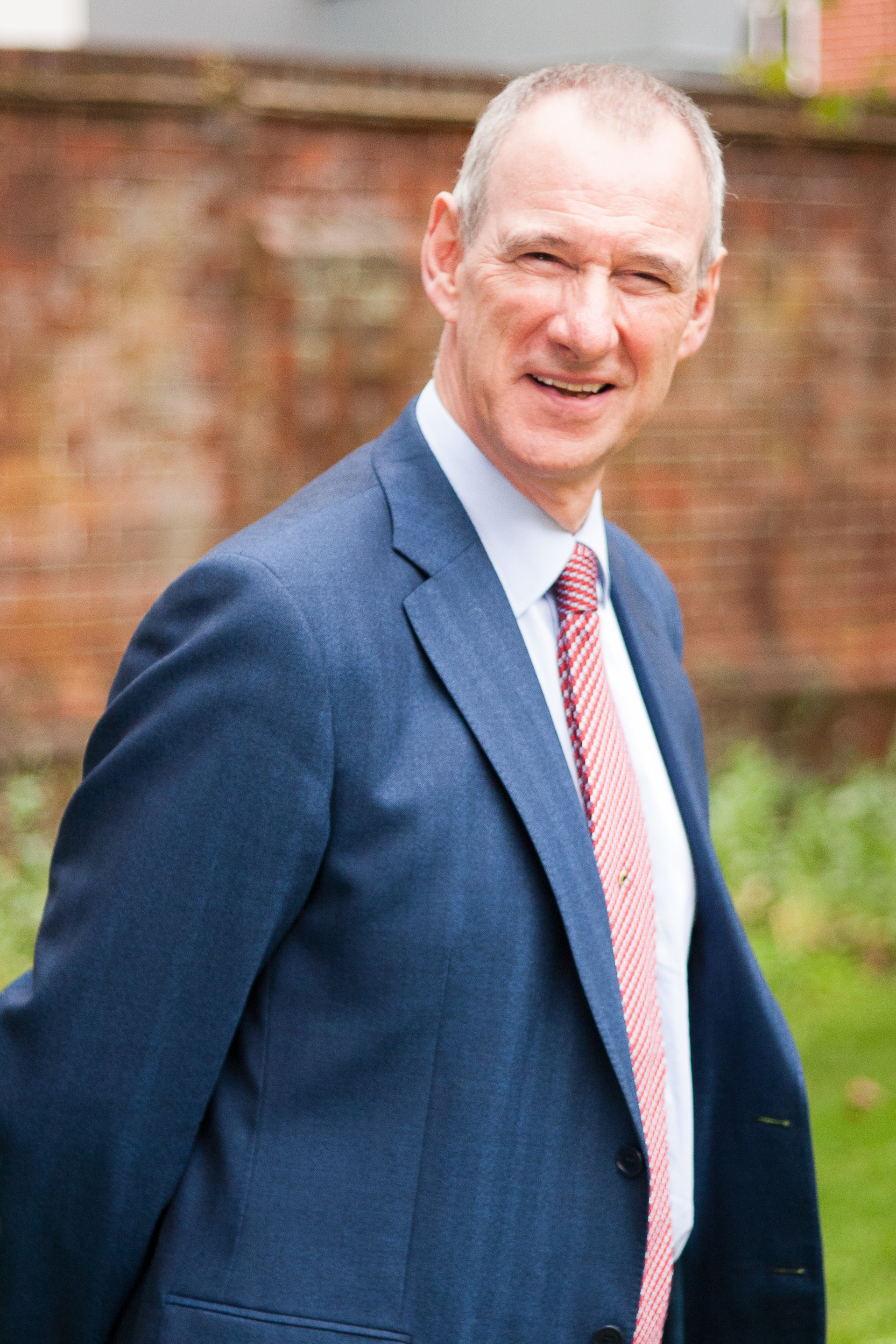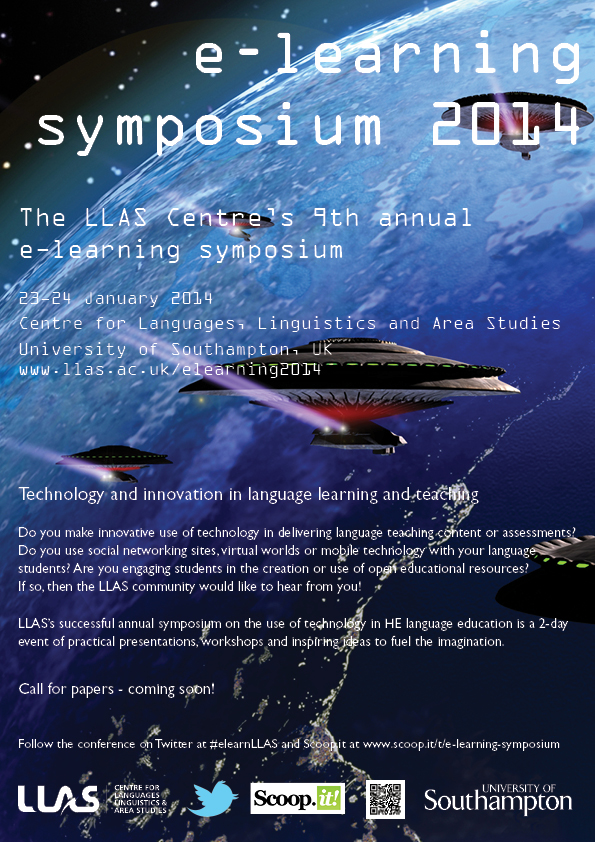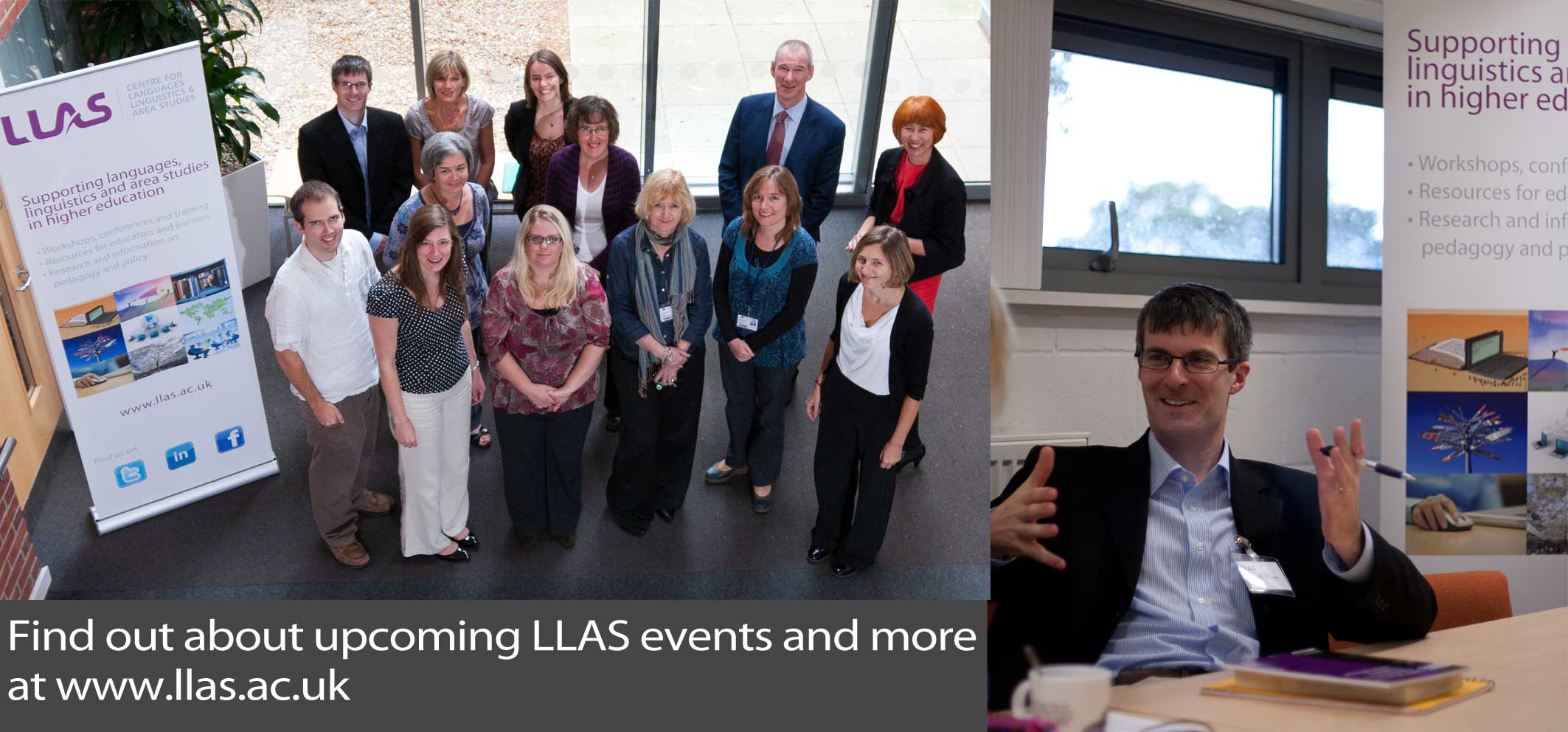March 2013 e-bulletin - LLAS Centre for languages, linguistics and area studies
The monthly LLAS Centre e-bulletin gives information on events, news items and newly available resources. Register if you would like to receive notification of future e-bulletins via email.
 |
News Bulletin |
Dear colleague,
Welcome to the LLAS e-bulletin for March 2013. Click here to see this email on the LLAS website.
Message from the Director 
Travelling around Europe recently, it has been very humbling to see how difficult life is for colleagues in other countries. A Greek colleague has had a 65% reduction in salary; a Portuguese colleague had a 36% reduction; while an Irish colleague had ‘only’ a 25% pay cut. And alongside that, posts are being cut and departments closed. For all the austerity we are suffering in the UK, we are still relatively protected. Wisely, the government has maintained the funding for education and research at a level that many European colleagues might envy. It will certainly benefit the future prosperity of our country if it can be sustained.
Mike Kelly (follow Mike on Twitter at @ProfMikeKelly)
Director, LLAS Centre for languages, linguistics and area studies
This month's e-bulletin in brief
- In the news
- NEW Meet the LLAS team: Alison Dickens and Angela Gallagher-Brett
- LLAS blog: Do you engage with iTunesU?
-
LLAS events : Our events programme in full can be found at www.llas.ac.uk/events
IN FOCUS : Teaching Residence Abroad, Social Networks and Second Language Learning, 10-12 April 2013, University of Southampton
In the news
Open Education Week webinar on OER and Languages 
Kate Borthwick, elearning coordinator at LLAS co-hosted a webinar with Anna Comas-Quinn, from the Open University, on Friday 15th March. This webinar was part of Open Education Week 2013 and we talked about recent UK work in OER and languages; repositories (LORO, LanguageBox, HumBox) support services (LLAS, COERLL, LARC), communities (mfltwitterati, TES), and sources of reusable material for language teaching and learning. Catch up with the recording at: http://languagebox.ac.uk/3297/
 Polyglots required if we want a place in the global academy
Polyglots required if we want a place in the global academy
English cannot be the only acceptable language of scholarship, says Toby Miller. It’s arrogant, impractical and anti-intellectual. The signs are all there: the future domination of English as the major language of international diplomacy, business and education seems assured. Safely positioned in the top three internet languages and the top two Twitter languages, it is the preferred mode of communication for international airline pilots, corporate engineers, university physicists and medical researchers, inter alia. Read the full article here.
Audio Lingua 
What is Audio-Lingua ? A collaborative bank of authentic audio resources, recorded by native speakers, for a freely pedagogical or personal use. The mp3 files are classified according to the reference levels defined by the Common European Framework of Reference for Languages. You can listen to the audio files online, download them one after another or register to the podcast. To find out more visit www.audio-lingua.eu
 LLAS e-learning symposium 2014 - Call for papers - coming soon!
LLAS e-learning symposium 2014 - Call for papers - coming soon!
Do you make innovative use of technology in delivering language teaching content or assessments? Do you use social networking sites, virtual worlds or mobile technology with your language students? Are you engaging students in the creation or use of open educational resources? If so, then the LLAS community would like to hear from you!
LLAS’s successful annual symposium on the use of technology in HE language education is a 2-day event of practical presentations, workshops and inspiring ideas to fuel the imagination.. Read more about the symposium on our scoop.it page at http://www.scoop.it/t/e-learning-symposium.
LLAS/Routes into Languages 'Why study languages?' new 2013 calendar !! 
This calendar is produced by LLAS Centre for languages, linguistics and area studies as part of the Routes into Languages programme. You can download all months for free at the beginning of each month at http://languagebox.ac.uk/3126
This year, languages featured include Italian, Arabic, Chinese, Tigrinya and more!
 Read more news items on our Scoop.it page at www.scoop.it/u/llas-centre#curatedTopicsTabSelected
Read more news items on our Scoop.it page at www.scoop.it/u/llas-centre#curatedTopicsTabSelected
Meet the LLAS team
 Alison Dickens
Alison Dickens
I have been involved in LLAS since 2000 and am proud to be one of the original members of the team which was set up to support and enhance teaching in languages, linguistics and area studies in higher education. I am now Assistant Director of LLAS and am happy to say that I am responsible for a great team of people working on an ever growing range of projects and activities within Higher Education and beyond. My own background is in language teaching (secondary trained) and I have worked across a range of sectors, primary and adult language teaching as well as in higher education in a range of student and staff support roles. My areas of personal interest are informal and lifelong language learning, e-learning and internationalisation and I have worked on a number of projects in these areas at UK, EU and recently international level. My job has taken me on a fascinating journey over the last 13 years throughout which I have continued to learn new things and enjoy meeting a wide range of interesting and stimulating people. Some of the highlights have been securing my first EU project (Opening the Door to Language Learning, 2002), seeing our e-learning symposium bloom from a small seed to an established annual event (see #LLASelearn), making a difference to the teaching lives of language teachers both within and outside the mainstream (Community Café project), working in collaboration with students (REALIE project), helping to create a community of open practice in the humanities (HumBox) and receiving an award on behalf of my second EU project (the Language Café). Every day at LLAS is different and not without its challenges but the journey continues and there are still new paths to follow, new ideas to develop and new projects to work on. I can't wait to see what tomorrow brings. You can follow Ali on twitter at @AliDickens
Angela Gallagher-Brett
I am a language teacher, academic developer and researcher. I am particularly interested in language learning motivation, anxiety (especially in speaking) and transition from school to university. My PhD thesis examined language learners’ motivational perspectives on speaking in an English secondary school. My most recent research study (with my colleague, Kate Borthwick) has involved an exploration of HE language teachers’ motivational self-efficacy in the use of Open Educational Resources. I joined LLAS in 2003 and currently lead our work in the area of cross-sector partnerships. I oversee the Routes into Languages programme and have particular responsibility for evaluating Routes activities and for conducting an annual survey of first-year language undergraduates to ascertain the extent to which students have had prior engagement with languages outreach and enrichment activities. I love languages and am learning Spanish in my spare time. Follow me on Twitter @angegallagher3b
LLAS blog 
Do you engage with iTunesU? Kate Borthwick, LLAS
iTunesU is an area within Apple iTunes which allows institutions to create accounts and publish their own, branded educational content. It is a place to showcase excellence in education through the open publication of teaching resources. We, at LLAS, have recently been involved in the HEA-funded ‘iTunes and You’ project, where we have taken existing open educational materials published for research and teaching by humanities staff at the University of Southampton, and worked with the university marketing department to repackage them as learning modules in the form of iTunesU course packages. This is a new way of presenting content through the University’s iTunes site and offers a model of engagement for academics to showcase and package their research and teaching work in appealing ways to a broad, global audience.
Forthcoming events in the LLAS community

April 2013
IN FOCUS Residence Abroad, Social Networks and Second Language Learning
10 April - 12 April, 2013 - University of Southampton
Keynote Speakers:
Jim Coleman, Open University, UK
Celeste Kinginger, Pennsylvania State University, USA
Ulrich Teichler, University of Kassel, Germany
Study/ residence abroad is a major and growing feature of higher education today, with an estimated 3.7million students participating annually. The European Union has set a target of 20 per cent of students undertaking some form of study/residence abroad, and some countries are already surpassing this level.
Study/ residence abroad can be a life-changing experience for participants, leading to academic, cultural, intercultural, linguistic, personal and professional gains (BA-UCML, 2012). At the same time, in the UK some student groups remain reluctant to participate, and those who do participate benefit from the experience to varying degrees. The design of programmes and support systems for students abroad can significantly affect their experience and the benefit they derive from it.
To register for the event go to www.llas.ac.uk/events/6649
May 2013
Language Partnerships across Sectors: Seminar and Discussion Workshop
1 May, 2013 - University of Strathclyde
June 2013
Teaching in higher education through the medium of English
10 - 14 June, 2013 - University of Southampton
January 2014
e-learning symposium 2014
23-24 January, 2014 - University of Southampton
|
TRAVEL FUND |
REMEMBER you can follow LLAS on Facebook, Twitter and Linkedin !
We would be grateful if you would forward this bulletin to colleagues and relevant mailing lists. Please do not hesitate to contact LLAS if you have any queries regarding this bulletin.
LLAS Centre for languages, linguistics and area studies
University of Southampton | Avenue Campus | Southampton | SO17 1BJ
p: +44 (0) 23 8059 4814 | f: +44 (0) 23 8059 4815 | llas@soton.ac.uk
www.llas.ac.uk

![]()
![]()
![]()
If you do not wish to receive any future messages from LLAS, please let us know by replying to this email.